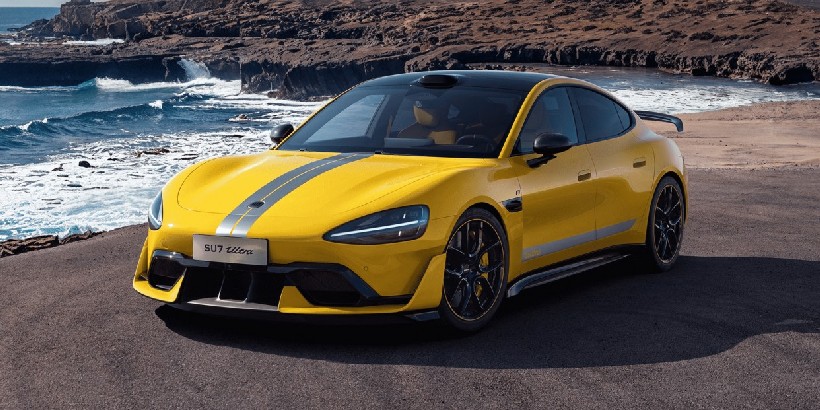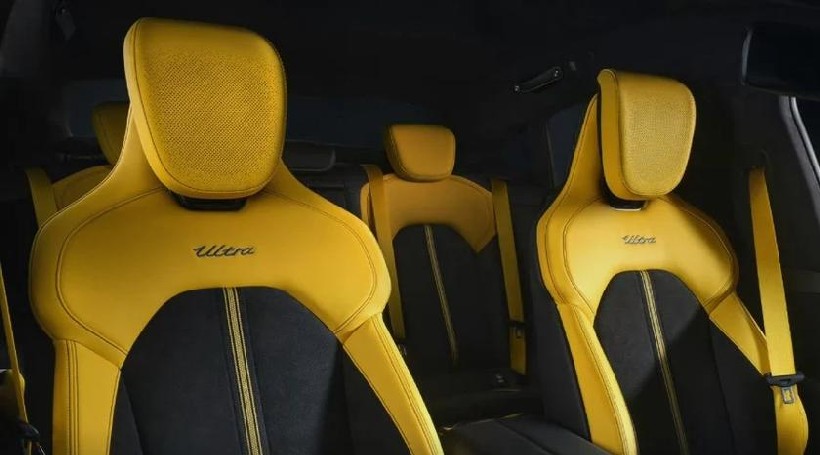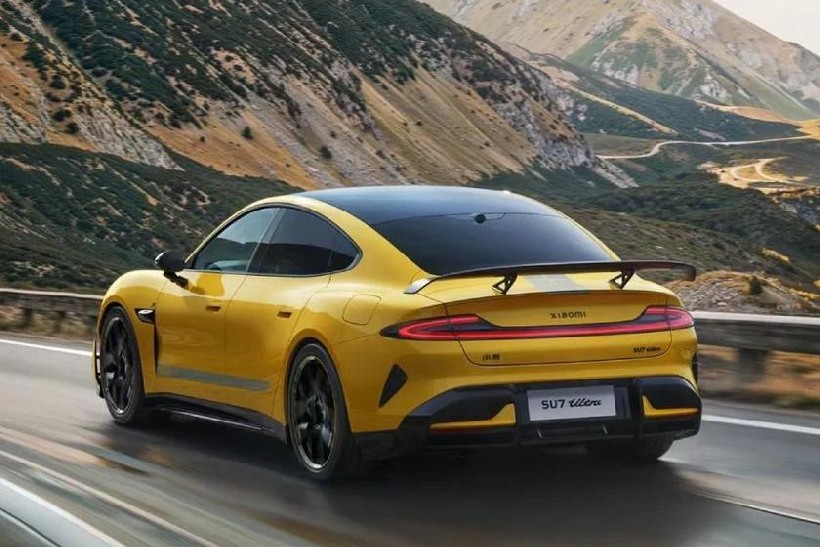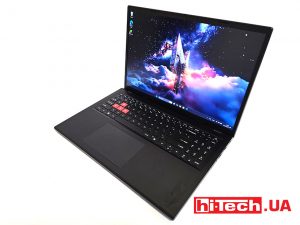The Xiaomi SU7 Ultra electric car has 1,500 horsepower and competes with the Porsche Taycan Turbo GT
01.11.24
Xiaomi has introduced the SU7 Ultra electric sedan for the Chinese market, which impresses with power and performance. The car is equipped with a 1500 hp engine, which allows it to accelerate from 0 to 100 km/h in 2 seconds. It is based on the standard SU7, but features improved aerodynamics: sports bumpers, a wide body, a rear spoiler and an active diffuser that provides up to 265 kg of downforce for improved stability.

The seats are upholstered in Alcantara leather, and the carbon fiber elements emphasize the dynamic nature of the SU7 Ultra. The car is equipped with a Qilin 2.0 battery with a capacity of 93.7 kWh from CATL, which supports fast charging, allowing the battery to be recharged from 10% to 80% in 11 minutes.

The Xiaomi SU7 Ultra reaches a top speed of 350 km/h and uses carbon ceramic brakes for high braking performance. The sedan is priced at 814,900 yuan (about US$114,200) and is being positioned by the Xiaomi CEO as a rival to the Porsche Taycan Turbo GT, offering more power at a lower price. In the first 10 minutes from the opening of pre-orders, 3,680 reservations were recorded. Serial production is planned to start in March 2025.
Don't miss interesting news
Subscribe to our channels and read announcements of high-tech news, tes
Oppo A6 Pro smartphone review: ambitious

Creating new mid-range smartphones is no easy task. Manufacturers have to balance performance, camera capabilities, displays, and the overall cost impact of each component. How the new Oppo A6 Pro balances these factors is discussed in our review.
Acer Nitro Lite 16 (NL16-71G) laptop review: versatile and attractive

The 2025 Acer Nitro Lite 16 features an interesting case design, gaming accents, and proven components. Let’s take a closer look at its features.
Ukrainian Company DeViro Unveils New SOKYRA Interceptor Drone DeViro interceptor drone SOKYRA
Ukrainian defense company DeViro has presented the SOKYRA interceptor drone, capable of reaching speeds of 240 km/h with an operational range of 45 km.
XGIMI Z6X – projector for watching movies on the ceiling projector
Main update of the Xgimi Z6X is the built-in swivel stand. The body can be tilted up to 150 degrees, which makes it easier to project onto the ceiling.


